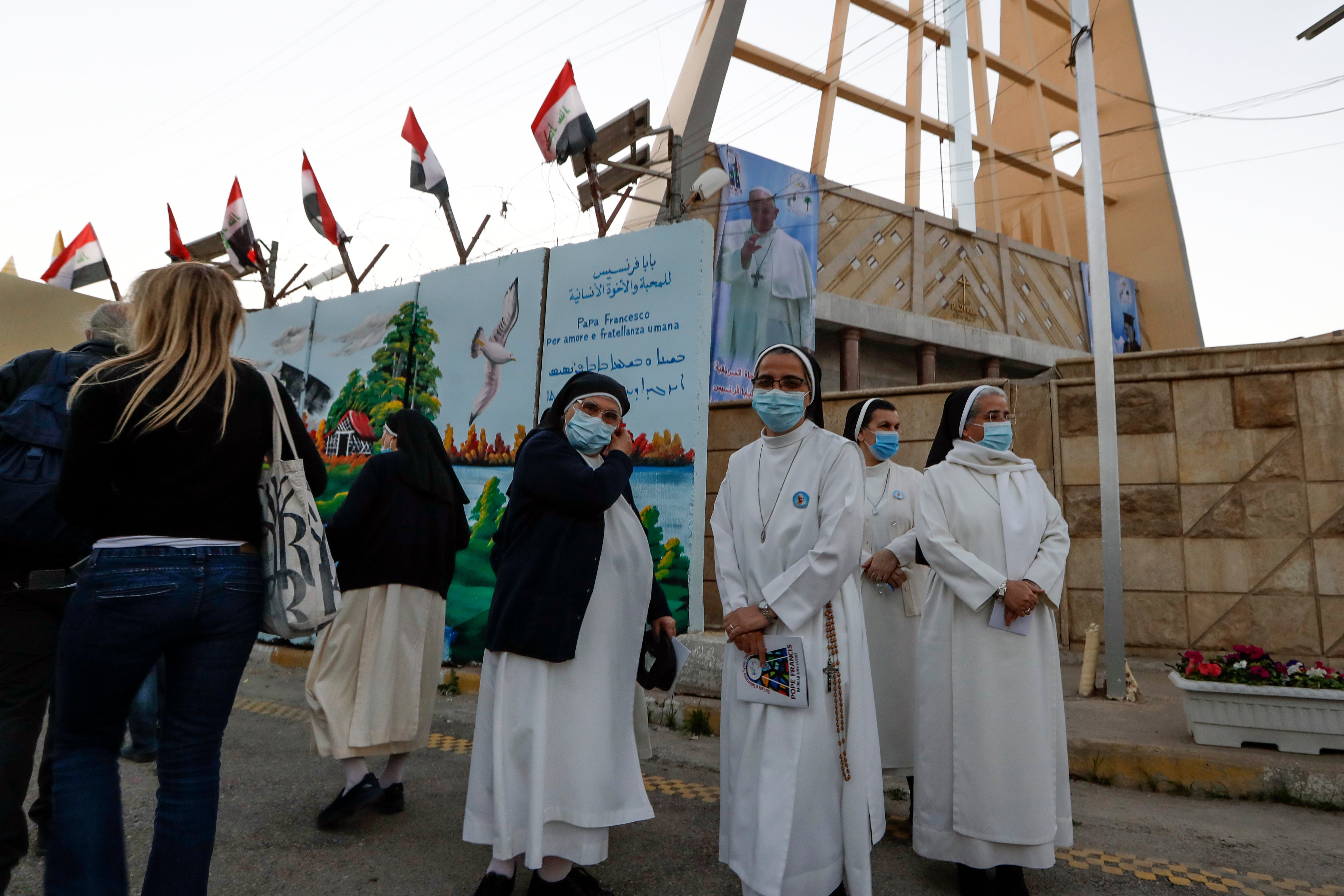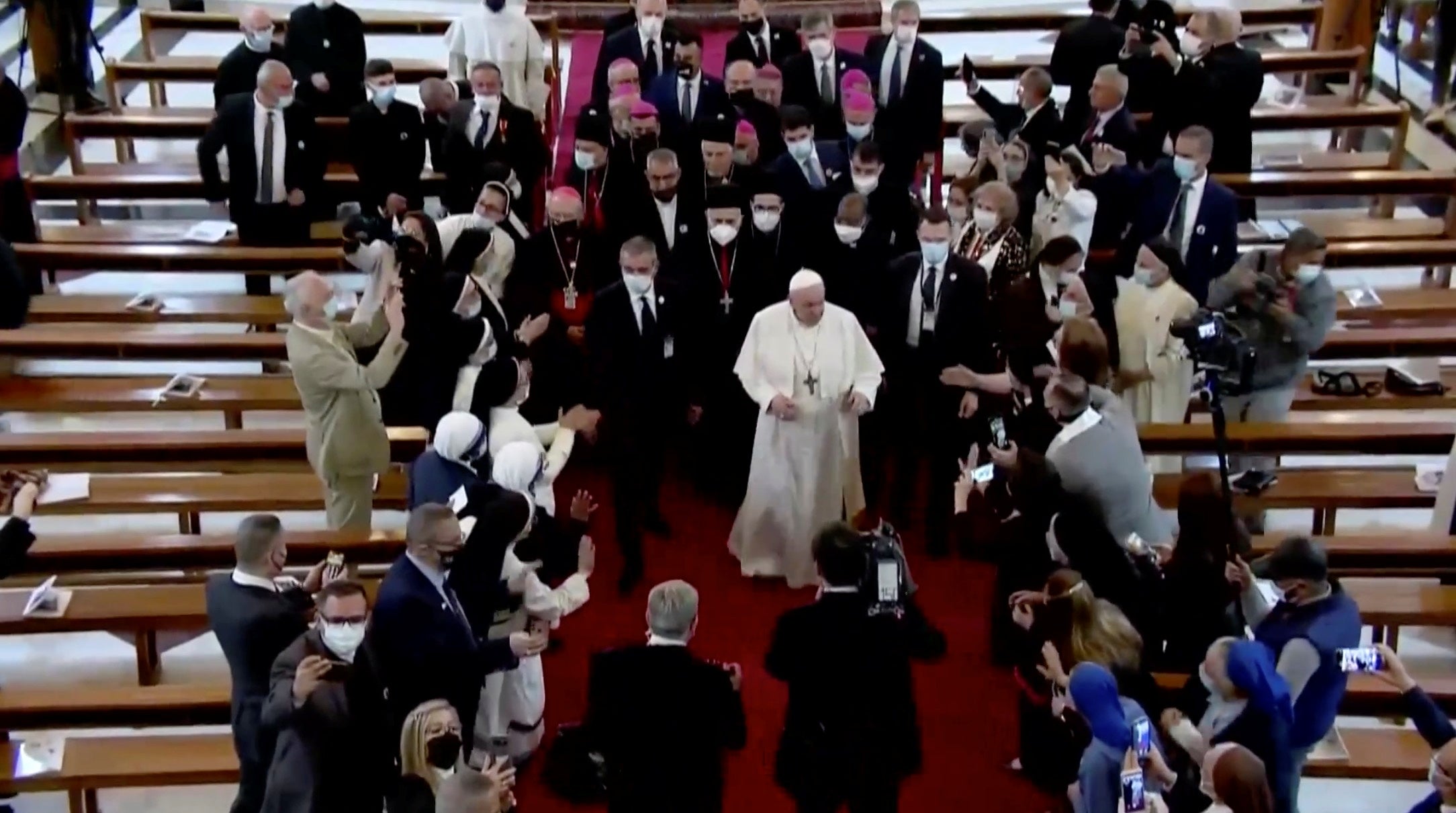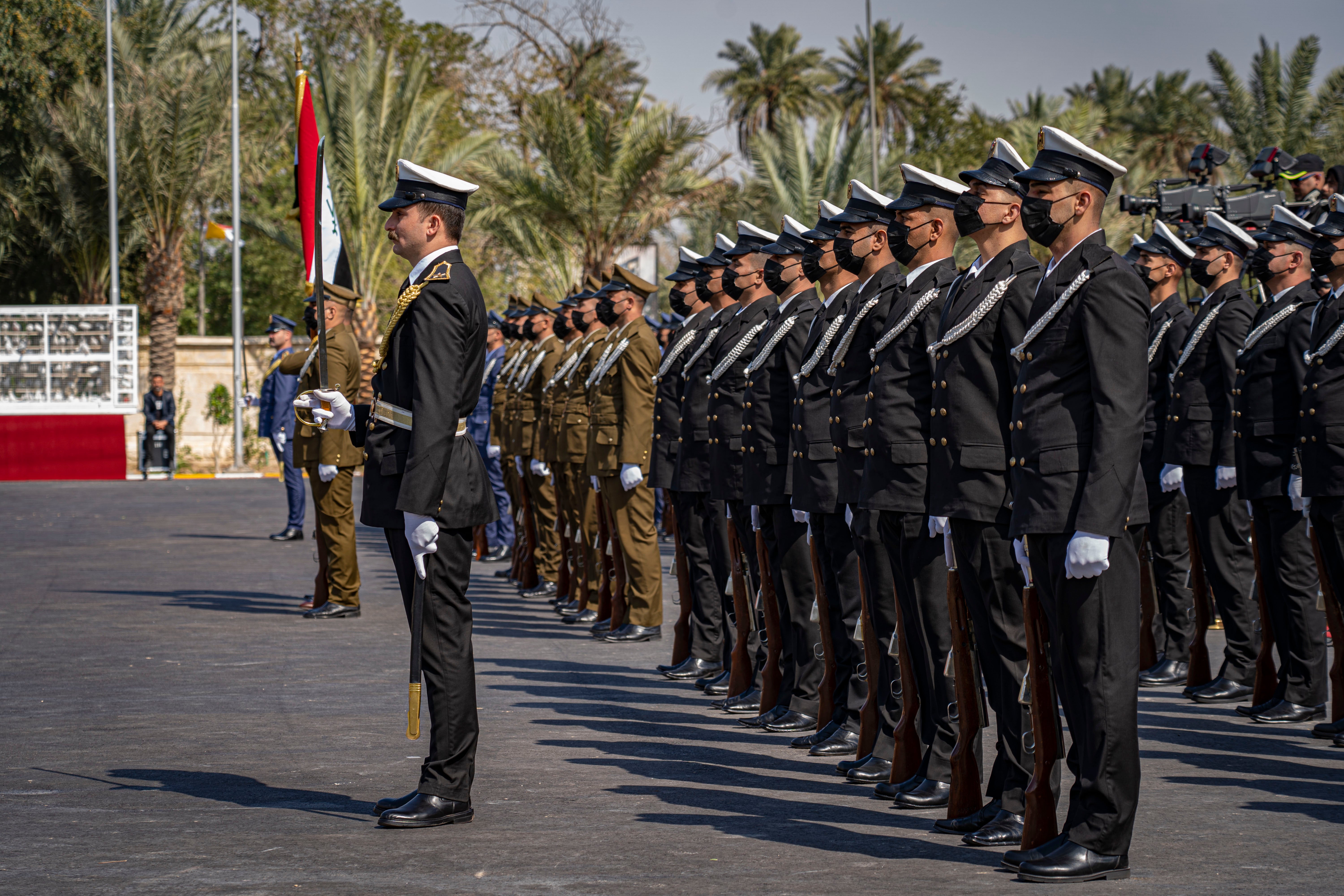Your support helps us to tell the story
From reproductive rights to climate change to Big Tech, The Independent is on the ground when the story is developing. Whether it's investigating the financials of Elon Musk's pro-Trump PAC or producing our latest documentary, 'The A Word', which shines a light on the American women fighting for reproductive rights, we know how important it is to parse out the facts from the messaging.
At such a critical moment in US history, we need reporters on the ground. Your donation allows us to keep sending journalists to speak to both sides of the story.
The Independent is trusted by Americans across the entire political spectrum. And unlike many other quality news outlets, we choose not to lock Americans out of our reporting and analysis with paywalls. We believe quality journalism should be available to everyone, paid for by those who can afford it.
Your support makes all the difference.With thousands of heavily armed officers crawling every major intersection and the entire city in full lockdown, it felt like Iraq was holding its breath when Pope Francis finally stepped on to the tarmac of Baghdad airport this morning.
There had been a tense lead-up to the trip, which is the first-ever papal visit to Iraq, amid mounting security concerns after a string of rocket attacks in the last few weeks and a surge in coronavirus cases.
But despite the difficulties, the Pope vowed to carry on with a three-day whistle-stop tour. It will take him by plane, helicopter and car to four cities, including the former Isis stronghold of Mosul and other areas which most foreign dignitaries cannot reach, let alone in such a short space of time.
He opened the visit from Baghdad with an impassioned plea for the end of militant violence, religious strife and inequality that has blighted Iraq and the reign.
“May the clash of arms be silenced... may there be an end to acts of violence and extremism,” he said speaking from Bagdad’s presidential palace, which was one of his first ports of call.
“Iraq has suffered the disastrous effects of wars, the scourge of terrorism and sectarian conflicts often grounded in a fundamentalism incapable of accepting the peaceful coexistence of different ethnic and religious groups,” he added.
Many had voiced concern about his arrival as it came just two days after a barrage of rockets struck a base in western Iraq that hosts US troops, during which one US contractor died from a heart attack.
In January, Baghdad suffered its first major suicide bombing in three years when two people blew themselves up at a crowded market, killing more than 30.

Compounding the problems were soaring number of coronavirus cases, which on Thursday hit a new record daily high forcing the government to enforce a three-day round the clock curfew.
But Francis vowed to travel regardless, saying this week that “the people cannot be let down for a second time”.
Pope John Paul II had to cancel a planned trip in 2000 after talks with the government of then president Saddam Hussein collapsed.
Since then Iraq’s Christian population has been devastated by militant attacks and Isis’s takeover, shrinking from over a million before the US invasion in 2003 to just over 200,000 now.
And this was the focus of his speeches delivered at various locations across the country.
At the presidential palace, he urged Iraqis to see the country’s minorities as a “precious resource to protect”, not an obstacle to be eliminated.
He later paid tribute to people killed in attacks motivated by religion, visiting the Our Lady of Salvation church in Baghdad where Islamist gunmen killed about 50 worshippers in 2010. Their deaths were a reminder that “violence or the shedding of blood is incompatible with authentic religious teachings”, he said.
On Saturday he is set to travel south to Najaf where he will meet Iraq’s top Shia cleric, grand ayatollah Ali al-Sistani, before taking a helicopter to the ancient Mesopotamian site of Ur, the birthplace of the prophet Abraham who is revered by Christians, Muslims and Jews, to hold an interfaith meeting.
On Sunday, he will honour the dead in a square in Mosul where he will meet the dwindling population who have returned to reclaim their houses, burnt, looted and ransacked by Isis. He will also bless the churches that were used as a firing range by the jihadi group.
Christianity in Iraq is among the oldest in the world, but after years of being attacked by militants, al-Qaeda-linked groups, then Isis and most recently militias and gangs, it has been left decimated.
Even after the defeat of Isis in 2017, Christians are still under threat as the country continues to be a theatre for global and regional score-settling. This has largely manifested itself in a bitter US-Iran rivalry that continues to play out on Iraqi soil, raising fears about the safety of the 84-year-old pontiff.
The Vatican admitted that they enforced additional security precautions taken because of the dangers.
Read more: Devastated by war, Iraq’s Christians hope the Pope’s first ever visit can bring change
The papal entourage were all vaccinated before travelling to Iraq. For the first time the Pope eschewed his usual mode of transport – open-topped vehicles – and instead was shuttled through the city in a bulletproof BMW flanked by police units on motorcycles.
Drones were used to monitor his every route, an estimated 10,000 additional troops were deployed to the streets, and explosive and counterterrorism forces were on standby to ensure his safety.
Iraqi security officials told Reuters that officers had also been trained to deal with worst-case scenarios, from street battles to bombings and rocket attacks.
Meanwhile, undercover intelligence and national security officers were also deployed at the gatherings attended by Francis and technical teams jammed or cut off suspicious phone calls or radio communications.
In a stark reminder of the region on edge, after begin greeted on the tarmac by the prime minister, Mustafa Al-Kadhimi, the Pope exited the airport driving past the site where Iranian commander Qassem Soleimani and Iraqi militia leader Abu Mahdi al-Muhandis were killed in a US airstrike at the start of last year, which nearly pushed the region into war.

The atmosphere continued to be muted.
While Baghdad’s main highways were festooned with Iraqi and Vatican flags, and churches he was set to visit were refurbished, barbed wire snarled across the main streets. The towering blast walls protecting the Christian buildings were brightened up with colourful murals.
The usual large crowds that greet the pontiff could not be present because of the round-the-clock coronavirus curfew.
At the palace, President Salih’s guest was greeted by a military band and dozens of doves being released. He acknowledged the violence and persecution that Iraq’s Christians and other minority groups have suffered over the last few years, saying they had been forced to abandon their homeland having “dire consequences” for the country.
The president said that the Pope’s visit was an opportunity to improve Christian-Muslim relations and announced the launch of a religious dialogue initiative bringing together clerics from across the major religions.
“We are healing our wounds, and here your Holiness is with us helping us to dress them,” he added addressing Pope Francis directly.

But these promises did little to reassure some Christians, who see the visit as an important sign of solidarity after years of persecution and violence has driven tens of thousands to leave their homes, but also fear it will serve little more than a public relations exercise.
Father Paul, a priest at Our Lady of Salvation church where the Pope later held prayers, said he hoped that the visit would produce more than “empty words”.
“We need deeds, not just promises, we wish our government to take note of what the Pope says and take action – not only for Christians but all of Iraqi’s minorities and poorest people.”
Jameel, 32, a Christian from Qaraqosh in northern Iraq where the Pope will also visit, agreed. His family members were kidnapped by Isis in 2014 and are still missing.
“A lot of world leaders and people have refused to come to Iraq because of the security situation so it is important that he has decided to visit despite the potential dangers,“ he told The Independent.
“We know this will bring hope – but we need action and change.”




Join our commenting forum
Join thought-provoking conversations, follow other Independent readers and see their replies
Comments